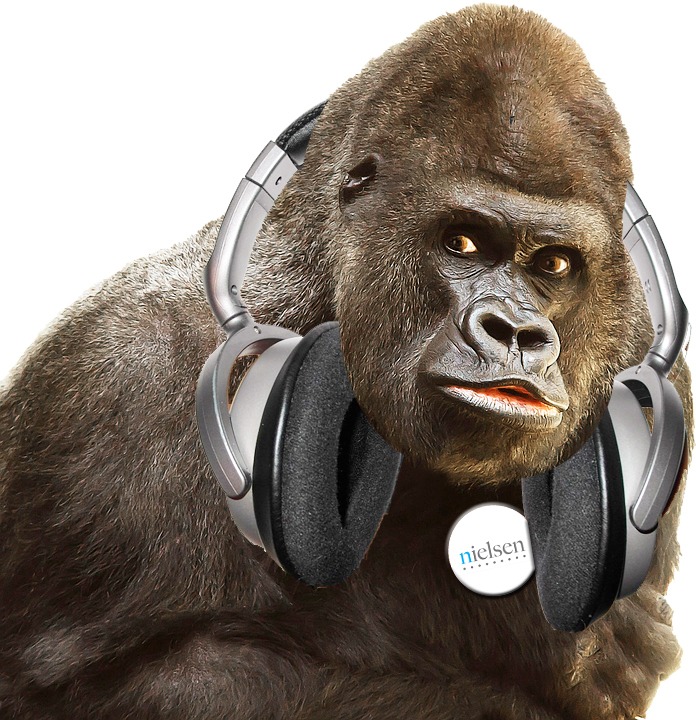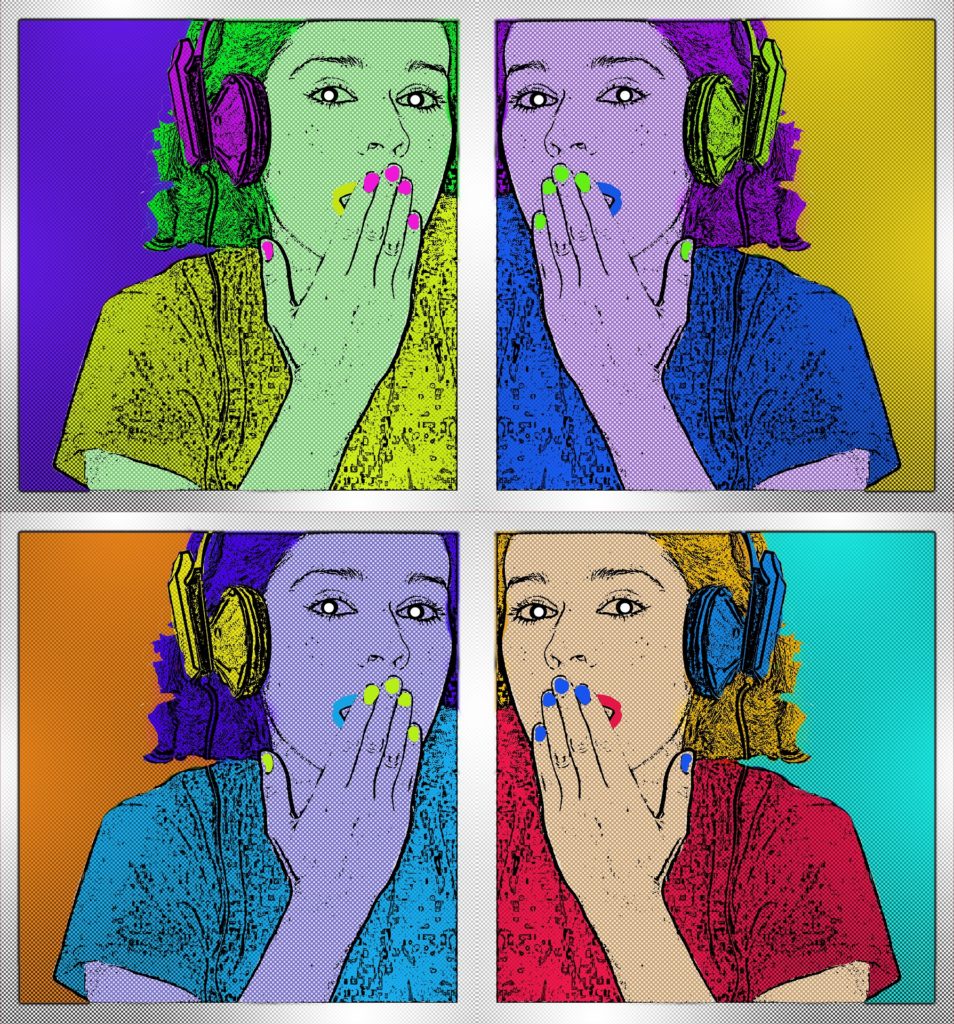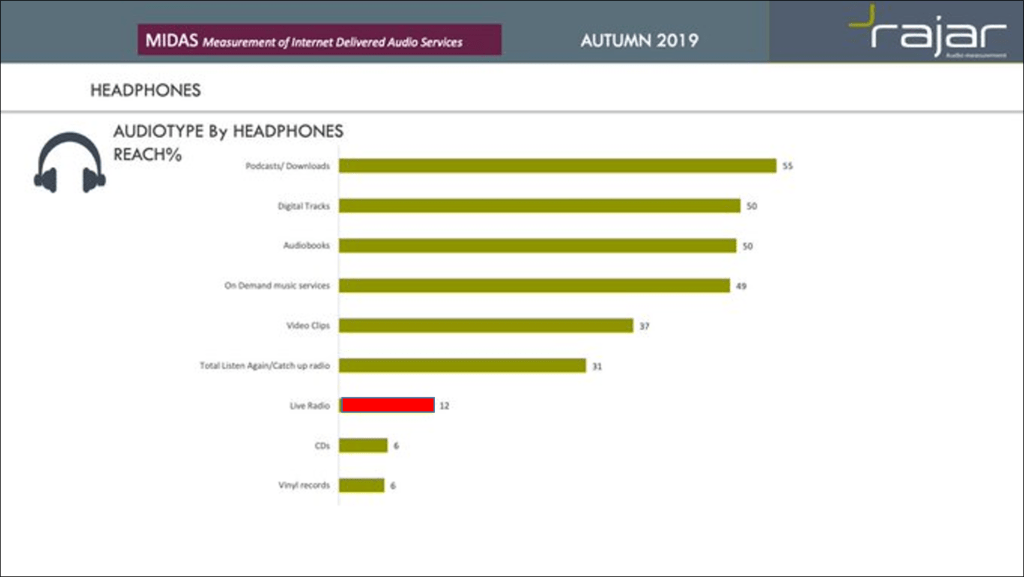
Yes, it’s that 800 pound gorilla – and it’s been in the radio room since PPM took over the way radio is rated in big markets more than a decade ago.
Headphone listening.
The theory has long been that because PPM only measures audible signals, headphone listening has been underrepresented since the advent of the meter. Nielsen’s “thigamajig” first invented by Arbitron to solve the problem is an adapter that few use. It’s clunky and cumbersome – and it defeats the idea of using headphones or earbuds in the first place. And because many new smartphones no longer include a headphone jack, Nielsen’s measurement has come under additional scrutiny.
We first started blogging about this problem back several years back, including data from a previous Techsurvey suggesting headphone listening was becoming more and more prevalent, especially among young people.
Now, Inside Radio’s Paul Heine has new information from the powers that be at Nielsen that a solution – initiated by research naturally – may be around the corner.
And not a moment too soon.
There’s not a conference where I speak – whether it’s the Radio Show or a state broadcaster get-together – when someone doesn’t ask me whether stations are getting the full picture of consumption from all the different ways in which people get their content.
 Yesterday’s blog post was about the need for stations to create “explainer videos” to guide the audience to better understand how to listen via new media outlets. But how is that listening being measured, and are stations getting their due?
Yesterday’s blog post was about the need for stations to create “explainer videos” to guide the audience to better understand how to listen via new media outlets. But how is that listening being measured, and are stations getting their due?
Decidedly not. And that is the paradox of these crazy times.
On the one hand, stations need to step it up and develop content on new platforms. But they should have every expectation that new media usage will be accurately measured and that proper credit and attribution will be accepted by advertisers.
As we know, that has not always been the case.
While technology has made it possible to listen to radio on smartphones, tablets, laptops, and smart speakers, there’s been that one rub in the digital ointment:
Headphone listening.
So, here’s the plan. Nielsen will launch a survey in Q4 of lapsed PPM panelists, digging into what gadgets they use to listen to radio. From there, they’ll model up what headphone listening looks like, hopefully, delineating by the typical crosstabs – age, gender, ethnicity – but also by the types of radio stations respondents listen to most.
Our Techsurveys indicate differences between format fans when it comes to headphone usage. And to be sure we’re current, we’ll be including headphone questions in  Techsurvey 2020, set to launch in January of next year. This will give us a chance to compare our findings to Nielsen’s in an effort to better understand how listening changes are occurring.
Techsurvey 2020, set to launch in January of next year. This will give us a chance to compare our findings to Nielsen’s in an effort to better understand how listening changes are occurring.
The good news is that Nielsen plans to use this data to “plus up” ratings among groups that use headphones most. And by conducting this study on an annual basis, Nielsen will be able to track changes.
It’s hard not to applaud this effort, but it’s also frustrating that it’s taken this long to tackle this important issue. Heine notes the last time a study of this nature was conducted was back in 2013 – yes, by Arbitron.
For contrast, RAJAR/Midas audience research from the UK from this autumn indicates headphone listening to radio may not be a primary source – but it’s there. They track 12% of their respondents using headphones or earbuds to tune in choices from BBC offerings to commercial stations. It’s far from the lion’s share of audio consumption while people are wearing audio headgear, but a 12% boost in the ratings would be a welcome addition right about now.

While there are many controversial issues revolving around audio listening measurement, this is one that has been under the radar for too long.
When it comes to headphone listening, it is time to stop monkeying around.
- Media And Technology In 2025: Believe It Or Not! - April 18, 2025
- In Radio, You Just Never Know - April 17, 2025
- The Secret To Making A Great Podcast (And Great Radio) - April 16, 2025




This is encouraging – and it’ll be interesting to see the range of listening via headphones to different formats. And yes Fred – 12% more audience is significant when we are concerned about declining PUR levels. I’ll take it!
You betcha – as will we all! Thanks, Jackson, for the note. Let’s hope broadcasters get the kiss they deserve.